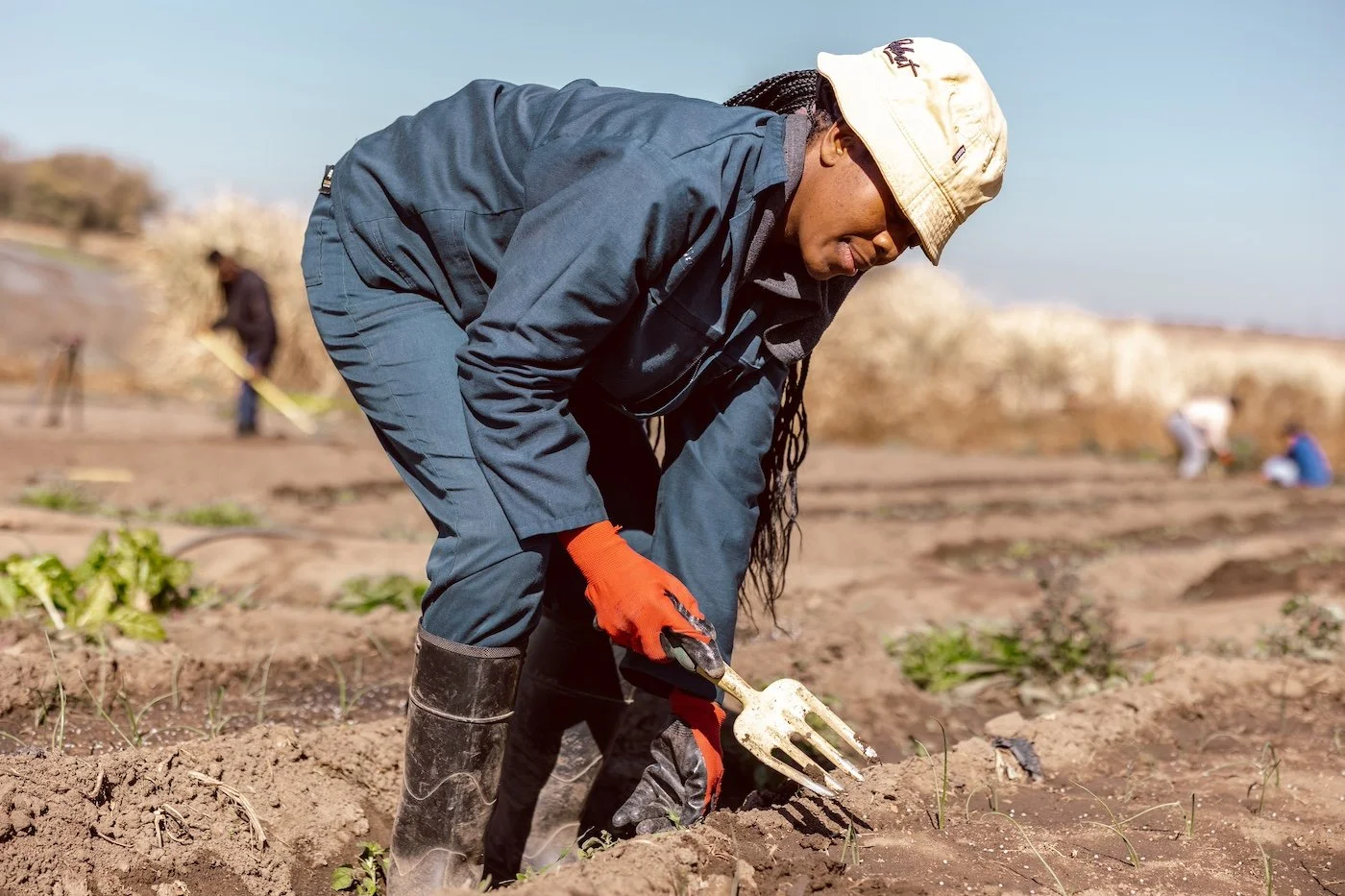Pathway To Self-Reliance
Nestled in the heart of the Eastern Cape’s Karoo region, the small town of Nieu-Bethesda is known for its rich cultural heritage, scenic landscapes, and tight-knit community. Yet, like many rural towns in South Africa, it faces significant socio-economic challenges such as limited job opportunities, food insecurity, and a heavy reliance on seasonal tourism. Young people often migrate to urban centres in search of work, leaving behind an aging population and underutilized land which is also limited due to access.
But a new kind of hope is sprouting in the dry Karoo soil, saffron. Through a collaborative effort with Saffricon, a South African innovator in saffron farming, and Arm in Arm in Africa,
INMED South Africa has initiated a saffron production trial in Nieu-Bethesda. The trial aimed to test the feasibility of cultivating this high-value crop under local conditions, and the results have far exceeded expectations. Not only did saffron bulbs thrive in the semi-arid Karoo soil, but yields were significantly improved when vermicompost, a nutrient-rich fertilizer made from earthworm castings, was added to the growing process. The success of this trial reinforces the power of combining regenerative agriculture with climate-smart practices.
“We are thrilled by the performance of the saffron trial,” said Mr. John Westcott, INMED South Africa’s Project Lead in Nieu-Bethesda. “What’s exciting is not just the crop’s resilience, but the market opportunity it presents. Saffron is one of the world’s most expensive spices, and its cultivation could be a true game changer for this community.”
Founded on the belief that local empowerment is the key to long-lasting change, Arm in Arm in Africa works across the continent to support basic human needs such as education, healthcare, and nutrition by partnering directly with local organizations. Their involvement in the Nieu-Bethesda saffron initiative stems from a deep commitment to economic transformation at the grassroots level.
Pat Dawson, Executive Director of Arm in Arm in Africa, shared his organization’s motivation: “For us, supporting this initiative was about aligning with a vision of empowerment. We’ve worked alongside communities in South Africa for many years and understand both the depth of the challenges and the extraordinary potential. Partnering on saffron production means we’re not just responding to poverty, we’re investing in prosperity. This project is about dignity and long-term transformation.” INMED South Africa’s Executive Director, Unathi Sihlahla, also expressed heartfelt appreciation: “We are immensely thankful to our partners at Arm in Arm in Africa. Their belief in the people of Nieu-Bethesda and their willingness to invest in bold, forward-looking initiatives like this saffron project exemplify what true partnership looks like. Together, we are cultivating more than a crop, we’re cultivating hope.”
Buoyed by the success of the trial, INMED South Africa and its partners are now planning commercial-scale production, set to begin in 2026. Based on conservative estimates, the project could yield over 2 million SAR (South African Rand; roughly $115,000) in revenue by its third year ushering in a new chapter of self-reliance and economic resilience for this historic Karoo town. With continued collaboration and commitment, saffron may well become Nieu-Bethesda’s golden thread toward a more sustainable and prosperous future.

